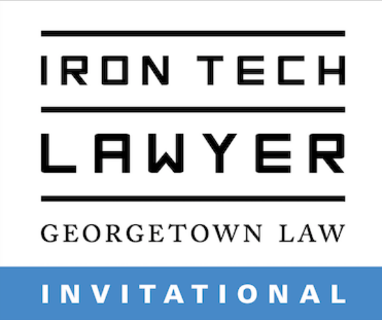Law students create four access-to-justice legal tech tools
Helen Metella - 23 April 2021

For the second year in a row, students from the University of Alberta Faculty of Law have been invited to an international competition in the U.S. to showcase a legal technology project that can improve access to justice.
Just as impressively, that app plus three others also created by current or recently graduated Faculty of Law students are receiving funding to develop them for real-world use.
All four apps were created using an open-source legal-automation tool called DocAssemble, which is a free, well-supported tool with a helpful user community to consult. Students involved are part of the Digital Law Innovation Society, a student group focused on taking to the next level their access to justice projects that were inspired by Faculty coursework that has a digital law focus.
First app
The Iron Tech Lawyer Invitational will be held at Georgetown Law in Washington, D.C., on April 29 to 30 to showcase and reward student-led technology solutions that improve access to justice.
A U of A team consisting of Karyna Omelchenko, ‘22 JD, Prabhjot Punnia, ‘22 JD, Denis Ram, ‘21 JD, and Darren Wagner, ‘22 JD, will compete with its interface application that automates the process of filing a complaint online with the Calgary Police Service and improves it so that it is user-friendly, consistent and specific.
The app queries complainants in plain language to determine if any legal grounds for complaints exist in their issue, asking for details about each ground specifically, just as a lawyer would do. It then generates a formal complaint letter. It can also submit the complaint, either anonymously or with the complainant’s contact details included.
Usable elsewhere
The lack of a consistent way to file complaints has been identified as a barrier to helping address systemic racism in the Calgary Police Service by anti-racism activists, municipal politicians, the provincial justice minister and police chiefs.
Since relevant statutes are identical across Alberta, the student-designed complaints app can easily be expanded to serve the rest of the province and potentially beyond.
With some funding from a $10,000 seed grant offered through the University of Alberta (via the Kule Institute for Advanced Study and the AI4Society Signature Area) and the Edmonton Police Service, plus another $45,000 the team expects to receive from the City of Calgary, the app will enter final stages of development before potentially going online to replace Calgary’s current online police complaint process.
Other apps
Three other app projects were designed to assist Student Legal Services, a volunteer-run legal information agency for low-income Edmontonians.
Along with the police complaints app, they are part of a research collaborative led by Professor Nidhi Hegde of the U of A’s department of Computer Science. In co-ordination with the student group Digital Law & Innovation Society, the collaborative will also use part of the $10,000 from the seed grant to advance work with a selection of these apps.
One app streamlines the intake process for SLS’s criminal defence clients, allowing a client, caseworker and SLS dayworker to collaborate efficiently. It was created by Brendin Gaucher, ‘22 JD, Spencer Klug, ‘22 JD, Jonas Patron,’22 JD, Barrett Schultz, ‘22 JD and Chase Stevens, ‘22 JD.
Another project is a Do-Your-Own-Divorce intake tool that allows SLS to gather information once and then generate data files that can be imported into a series of government online forms. That was created by students Hero Laird, ‘22 JD, Nick Juselius, ‘22 JD, Monica Sol Martel Oh, ‘22 JD, Justin Hjlesvold, ‘22 JD, and Peter Cheng, ‘21 JD.
The fourth app was actually created in 2019-20 by a team that includes Melissa Erickson, ‘21 JD, and now-alumni, Alec McIlwraith-Black, ‘20 JD, and Jordan Achtymichuk, “20 JD. Titled “The Beacon,” it has three main functions: it sends a geolocation pin to alert pre-selected contacts if there is an unfolding interaction with police; it can be swiped to begin recording audio and/or video; and it contains information that helps youth understand their legal rights when interacting with police.